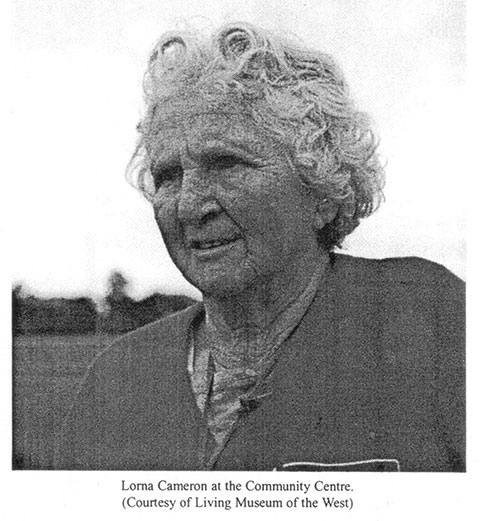Panel 5: Community – Women play a strong role in our local communities
Daisy Serong
Daisy was taken away from her mother when she was two in 1944. Daisy spent most of her youth living in Caloola, an institution for people with intellectual disabilities in Sunbury. She left in 1985. Daisy now lives in Footscray and works part time as a peer educator with Women’s Health West. She assists former residents of institutions to adapt to the challenges of living in the community. She has been involved on various committees for AM1DA Action for More Independence and Dignity in Accommodation , the Villamanta Legal Service, Citizen Advocacy and STAR Victorian Action on Intellectual Disability. Throughout her life in institutions she resisted authority by all the means available to her in her attempts to secure her independence.
When I was living in Caloola, I taught a friend to read and write. I was in trouble for this because some of the staff didn ‘t like it. I wanted my Mum. I went to the toilet and knocked my ear against the wall because I wanted my Mum so much.
(Taking A Stand, Jocelynne Scutt)
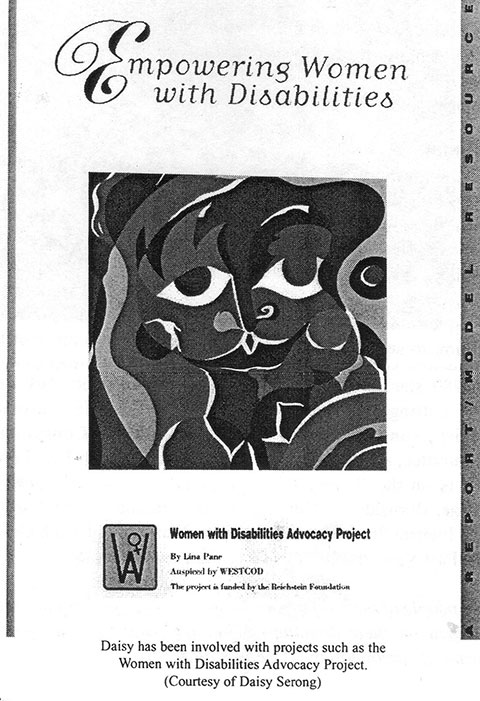
Kym Jowett
Kym was the Co-ordinator of the Heathdale Community Centre. Sat that time she had lived in Werribee for 5 years and worked at Heathdale for 11 years. Kym believes in access and equality for all members of the community and encourages men to participate in the community centre even though it has been primarily for women in the past. She has a strong commitment to improving education services and resources for the Koorie population in Victoria, is on several education committees and is involved in the development of a policy for Koorie education across Victoria. She feels strongly about the acknowledgment of Aboriginal history in the curriculum of schools and also feels people should appreciate the differences within the Aboriginal community. She is the Chairperson of the local KurungJag Koorie Co-operative.
It’s not the amount of Aboriginal blood that a person has, it is our state of mind, how we feel. 1 think it is really important to encourage our kids to stand up, say who they are, and find out about their own history.
Being in Neighbourhood Houses has influenced me. The idea that I could make a difference, being given the permission that even though you ‘re not working you can influence change, by influencing other people and helping other people at the same time.
(Gandolfo manuscript)
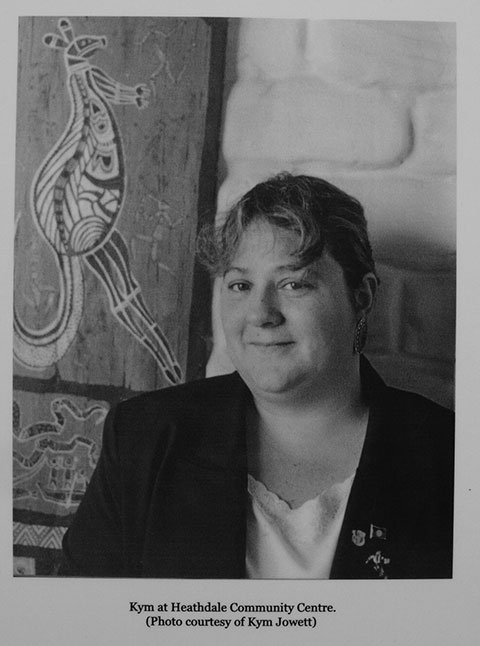
Gwen Goedecke
Gwen has spent her life committed to the prevention of war through her work in the political and peace movement. Her tnotivation came from experiences in living through World War 2 and hearing her parents’ stories about World War 1. She worked in a variety of jobs that gave her knowledge and information about strategies to work for peace within the community. Gwen worked at the Victorian Peace Council, the Trade Union Clinic, the Catholic Family Welfare Bureau and was Electorate Secretary to Dr. Cairns in the 1970s. After retiring from this position, she became a councillor for the City of Sunshine for 6 years. She has been heavily involved with the International Campaign for International Co-operation and Disarmament and the Union of Australian Women. She has participated in many United Nations International Year of Women Conferences including those in Mexico, Nairobi and Beijing. Gwen is currently researching and writing the 25 year history of the Footscray Community Arts Centre.
It’s incredible how things have changed and some things have gone.
I have been lucky to attend the Conferences for Women oil over the world. Whatever I learnt at an International gathering, I like to come back and share what I can with other women to make it relevant.
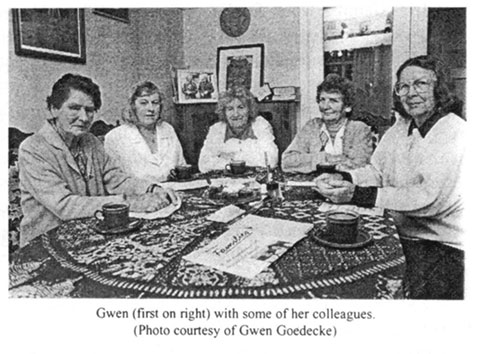
Helen Rodd
Helen’s family were English migrants. When Helen moved to Footscray from Mornington, she described her first impressions as ‘shocked but exciting’. She felt that she fitted in there. Helen worked at Debney Park as an integration aide and in Moonee Ponds assisting youth with learning and language difficulties. She was involved with local community health centre youth projects before becoming involved with the Western Young Peoples Independent Network group for 5 years. Since then, she has worked at Victoria University of Technology on the Life Learning Project which assists young people to manage the needs and expectations of their school, community and family. The project views the young person as a whole, not just a student. Helen is now a mother and remains committed to young peoples’ needs through such involvements as assisting at a local youth refuge, involvement on the Youth Affairs Council Committee, and participating in the planning for the Youth Education and Community National Conference.
For everyone, being open to new ideas is so important. There is a fear of difference – once you challenge that fear and take a risk, then you will learn.
Women are often powerless and isolated and need extra help and greater support to facilitate access to services and to find a new way to adjust to this new society.
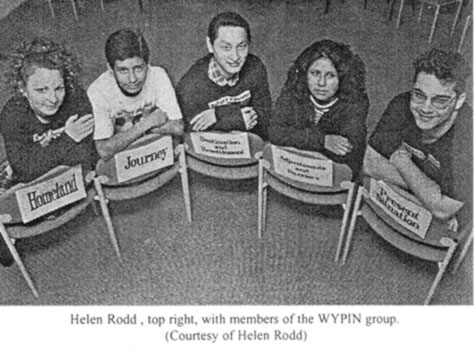
Lorna Cameron
Lorna moved from country Victoria to Melbourne in 1949. She eventually settled in St.Albans where she was disappointed by the lack of services for youth and women. Lorna had five children and became involved in the local kindergarten and school fundraising committees. From there, she came to be one of the main instigators in the development of a neighbourhood centre in St.Albans. This centre known as the ‘Tin Shed’ started as a boys club and developed into the one of the first neighbourhood houses and playgroup centres in the West. The aims of the Tin Shed are to provide emotional support, material aid and practical assistance for people; to foster self help groups to self sufficiency and independence; to develop a range of life skills to foster confidence and awareness; to provide a meeting place for isolated people’s and families and expand community networks; to provide an information and referral service to inform people about their rights to services and programs; to provide advancement of education for people most disadvantaged in the community; and to provide a forum where collective resident action can be supported. This service has survived on minimal finances due to the on-going commitment and dedication of its volunteers and some paid staff. They have proved that they can persist whatever the economic climate and government of the day.
The club started off in the 1950s in a tiny tin shed and with 400 pounds in a kitty.
The Youth Club is not only a hub for an amazing diversity of educational, cultural, communal and sporting activities, but also a living memorial to the stalwarts of St.Albans who strived throughout its entire history to keep it going.
